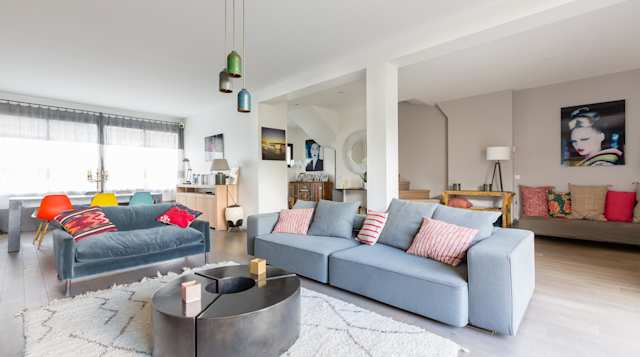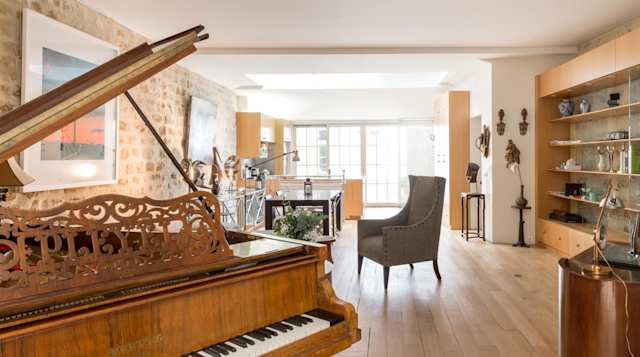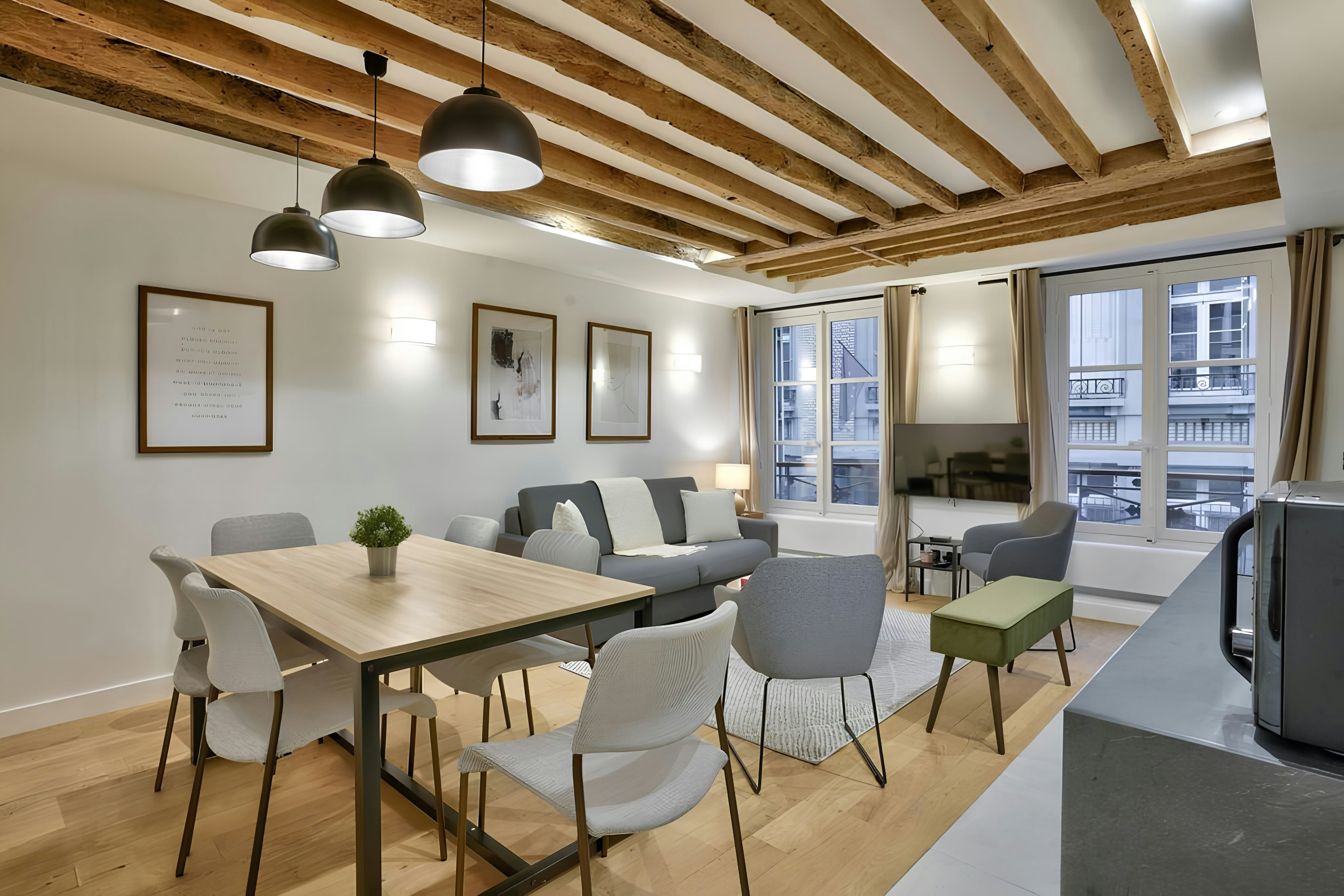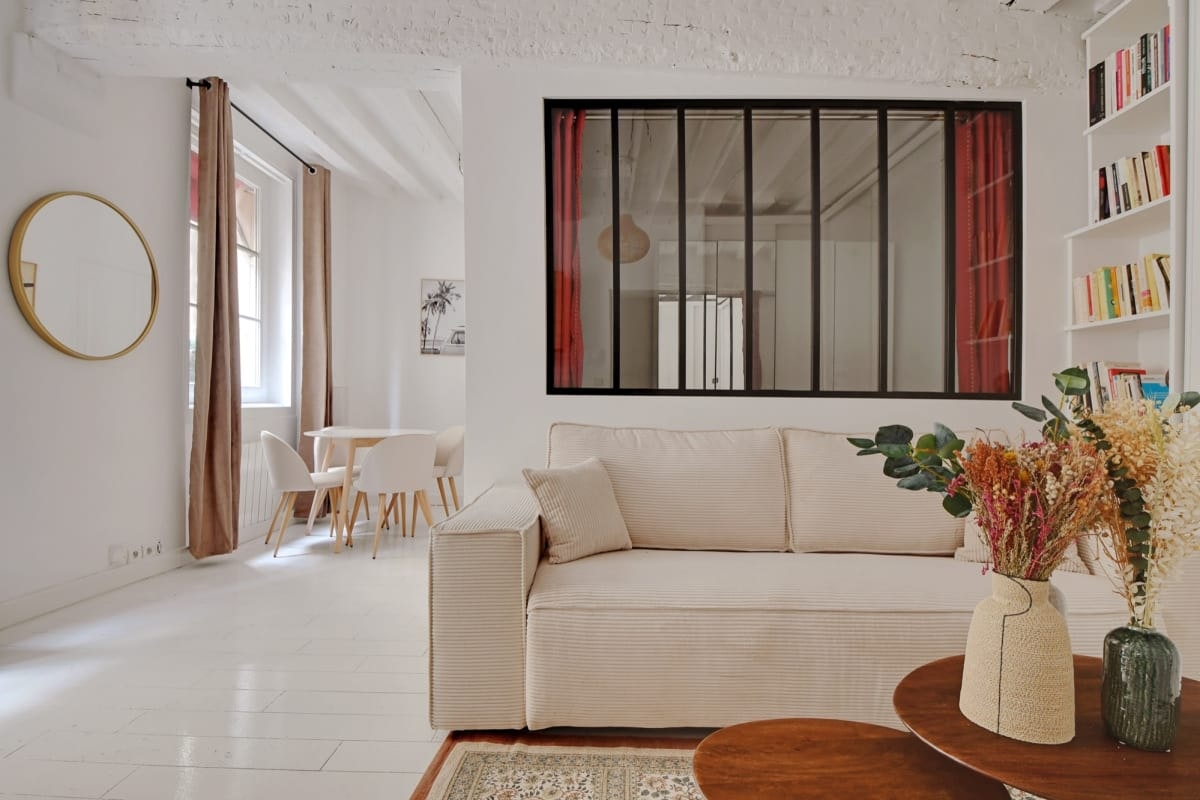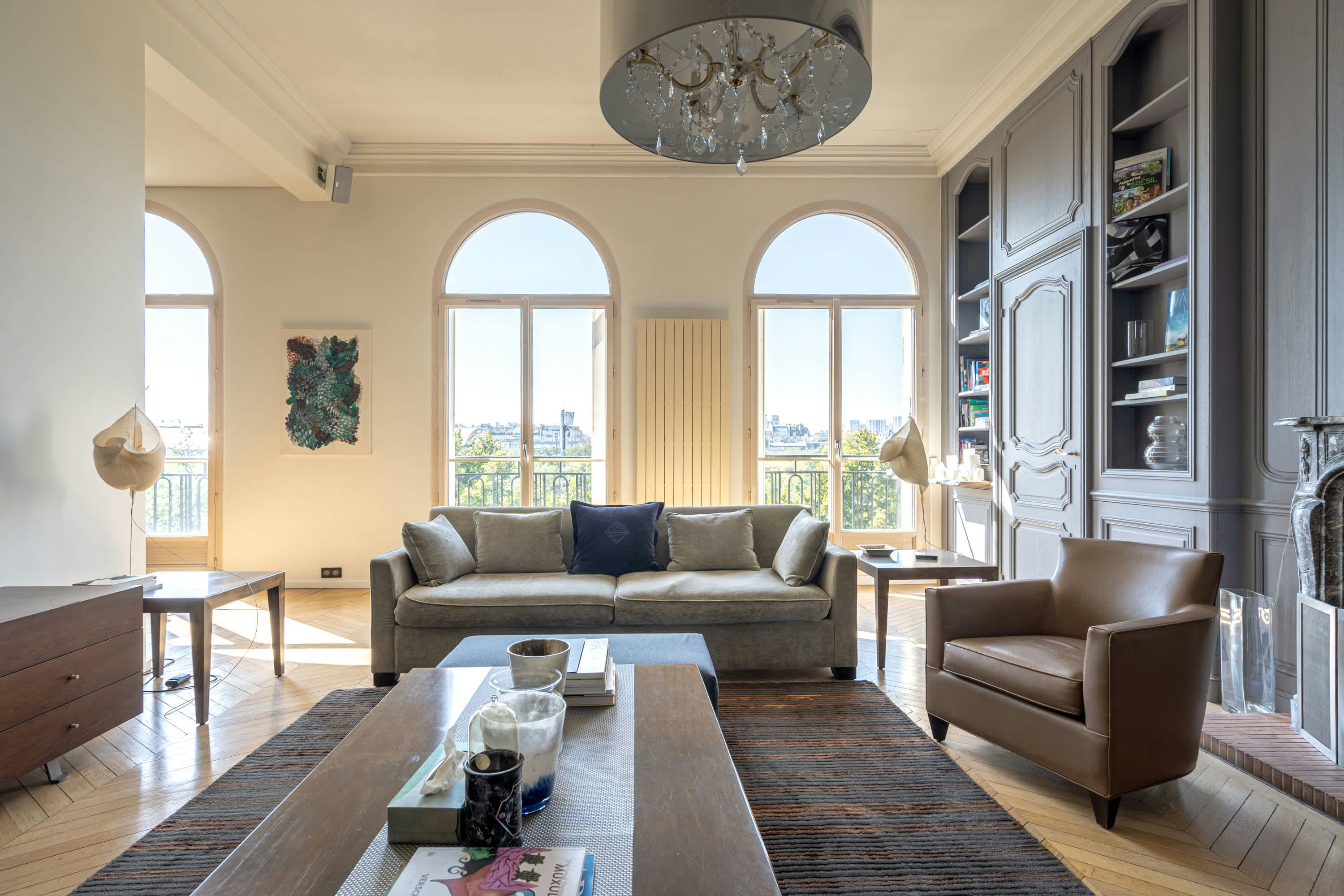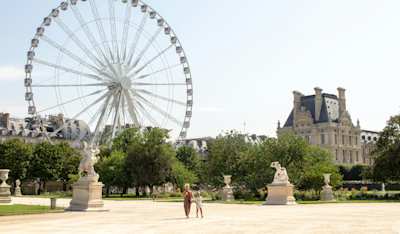Essential Travel Tips for Paris
When it comes to traveling in Europe, you’ll find that there are important things to keep in mind before you go. We’ve done the hard work for you.
~
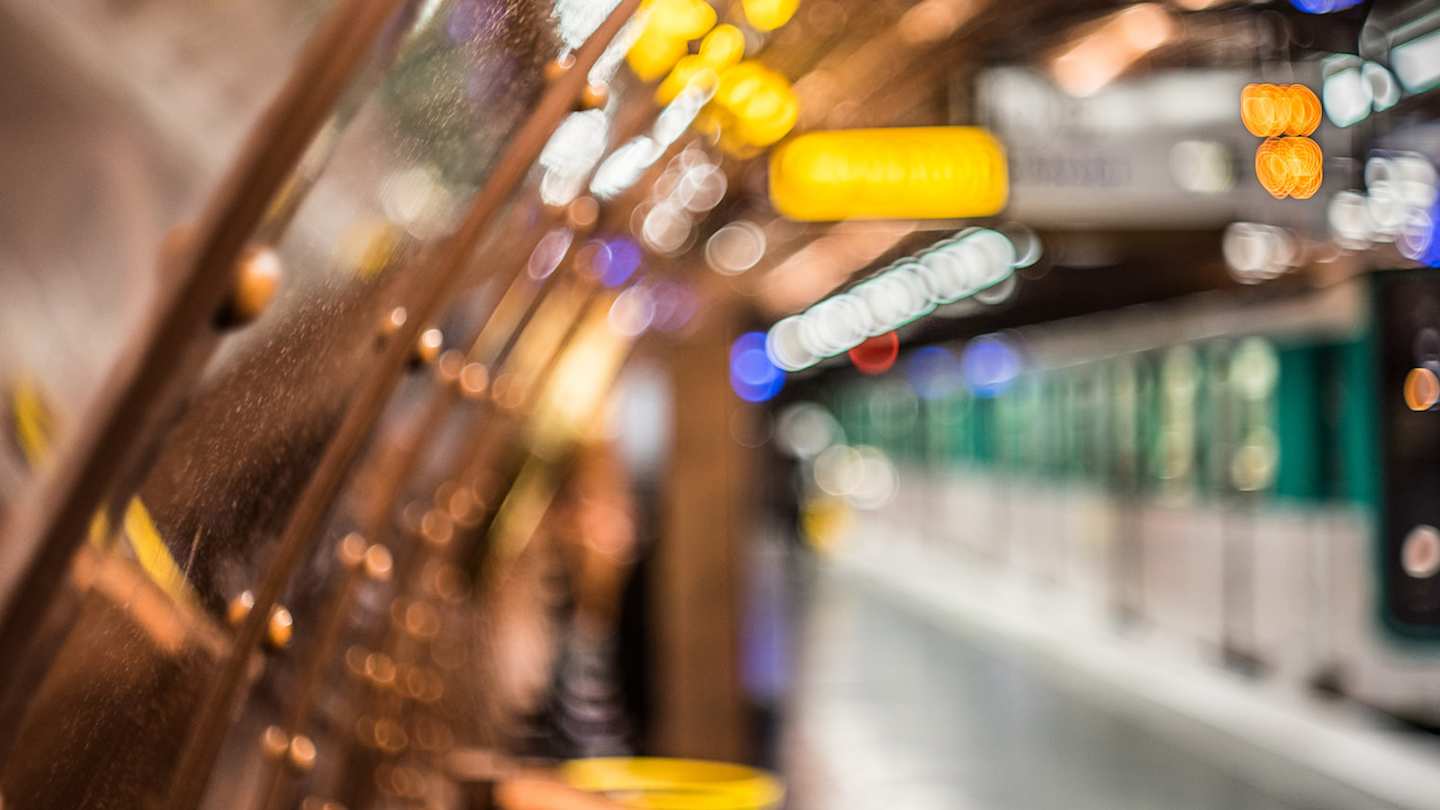
Travel shouldn't be as difficult to navigate as travel agencies seem to want us to think it is. We all know that Paris is one of the primary destinations for a city break, so it's only fitting that one should be well equipped with the dos and don't needed to navigate the city like a local. There's so much to consider, like where to stay in Paris with kids to which restaurants to book and at what time. We here at Plum Guide are here to help you with that vital information before you go with these travel tips for Paris - we wouldn't want you to experience Paris syndrome, after all.
Know the dress code
When considering a trip to Paris, one of the first things that most of us think about is the dress code. Because, after all, we're going to Paris. Parisians have a casual elegance that isn't rooted in money or brands alone. Their style is palpable, and when you're in Paris, it's not that hard to tell who is a local and who isn't. (Unless you pack for your trip incredibly well, that is.) Less is definitely more when it comes to Parisian styling - think casual layering and easy comfort. You're likely going to be doing a lot of walking and there's a reason that a lot of French women wear flat-soled dress shoes. Plum Rule of Thumb: Don't think too hard about what you're going to wear (or don't make it seem like you have, at least). Approach tapered trousers and a blouse with laissez-faire and you won't have to worry about street-sellers attempting to hock selfie sticks at you.
Be a savvy spender
These days it is so much easier to travel around the world than it used to be. There's no need to hit up the Bureau de Change before you're due to stay for a while in a new country. Prepaid travel cards are unbelievably handy. Many of them function along the same lines as a debit card, only they don't charge for foreign ATM withdrawals. (Let's face it, no machine should charge you for accessing your own money.) It's sort of like short-term banking without borders, meaning no hidden ATM fees. Finalement. With a prepaid travel card, you'll be able to use it in restaurants and stores, as well as top them up on an app. Which prepaid travel card should you go for? There are so many out there, but the one that has been constantly good to us is Revolut. Built around a handy app, this also allows you to monitor the rise and fall of the exchange rate. The reason this is so helpful is because, if you're in the planning process of going to Paris, you'll be able to monitor the rates for a while to pick which you want. You even get your own IBAN. Other alternatives: Paysera, TransferWise, WeSwap
Learn the language
Here are a few helpful phrases that could come in useful. Let's put it this way, it's silly not to at least try to speak French when you're there. How can a city that relies on greeting strangers in stores and boutiques be rude? They aren't. Parisians are down-to-earth and to be honest, they just want to have an easy go of it. So when it comes to these travel tips for Paris, we're not saying you need to pick up Rosetta Stone, as long as you give their language a go, they'll appreciate it.
Master the Métro
Insider Tip: A single ticket can also be valid for more than one use for a 1.5-hour window - don't rip it up like we did. (We live and we learn.) The Paris subway service - the Métro - is the simplest and fastest way to get around the city. The Métro doesn't operate too much differently to rapid transit in other cities. As a rule when it comes to travel tips for Paris: follow the signs and get to where you're going. If you miss your stop, just hop off at the next one and go the other way. Simple. The Métro may seem daunting at first, even to the initiated. It still relies on paper tickets (t+) printed out of kiosks, but if you're going to be setting up base in Paris for a few days to a week, it'll be in your best interest to look into a weekly pass. Regardless of the decision you make, travel in Paris is pretty inexpensive. The city is small and walkable enough that buying a carnet (10 tickets) may last you a few days. Métro tickets can be accepted on the subway, buses, trams, zone 1 of the RER (Réseau Express Régionale/Regional Express Network) and if you're staying in Montmartre, even the funicular.
The Parisian subway system is made up of over 300 stations, which makes it sound much more complicated than it is. The system was constructed to be within the confines of the city walls, so while there are 300 stations, they're all pretty close together. There's also no way of missing the variety of entrances that at times can be as extravagant as the buildings surrounding them. This labyrinth of stations stretches out over 16 lines (distinctly colour-coded and numbered) and the layout weaves a slightly less tangled web than the London Underground. Pretty much all of the Métro platforms are well signposted (with the sights - eg. Arc de Triomphe - included) and will help you figure out where you're going. All you need to remember is the number of your line and the general direction in which you're headed and that SORTIE is a nicer way of saying WAY OUT.
Other ways to travel
Tram: Paris has eight tramway lines with plans to build an additional two. While trams aren't as fast as the Métro, to ride in one is always quite enjoyable.
Bus: More than 60 bus lines run throughout the city. You'll never be far away from a bus stop. With the addition of bus lanes, journey time is slashed significantly.
Vélib': The city's public bicycle sharing program, there are Vélib' docking points all throughout the city. If you'd like to cycle around the City of Light, put down a small deposit and get yourself a ticket. (The area around Canal Saint-Martin is wonderful to cycle and the roads feel so much safer to cycle on than they do in the UK or the US).
Taxi: Old fashioned taxis run 24-hours-a-day, but if you're not too confident with your French, it might be easier to Heetch or Uber a Ride.
Download the best apps
Oftentimes when words fail, our smartphones can pick up the pieces. We've pulled together a few of the apps we like to use at Plum when we're looking for somewhere to stay. They'll make travelling in Paris feel second nature.
Yandex is the most useful app you will ever get to use as a traveller. It can translate menus or explain what you may need to say in a situation where you're unsure. Also? It functions offline.
Citymapper
Google Maps: Android users will already have this navigation program on their device, but for those of us who don't, all it takes is a downloaded replacement. Ta and da!
Heetch is an extremely innovating and exciting idea. Running as a French taxi company with daytime Uber prices at night time. No high demand inflation. Can you believe?
Le Fooding: A lot of the eateries we've tried in Paris have either been found through our very own tried and tested foodie guide or through this website. Le Fooding has in-depth reviews of the best restaurants in Paris. All you need to do is type in what sort of cuisine you're after... et - what is it they say? - voilà!
Stay in a remarkable home
If you're heading to the city and in need of a place to stay, look no further than our remarkable collection of homes in Paris. Looking for a room with a view. Our selection of Airbnb alternatives in Paris have some pretty remarkable ones. Only the top 3% of homes pass our Plum Test, meaning you're in for a great stay no matter which one you choose.
